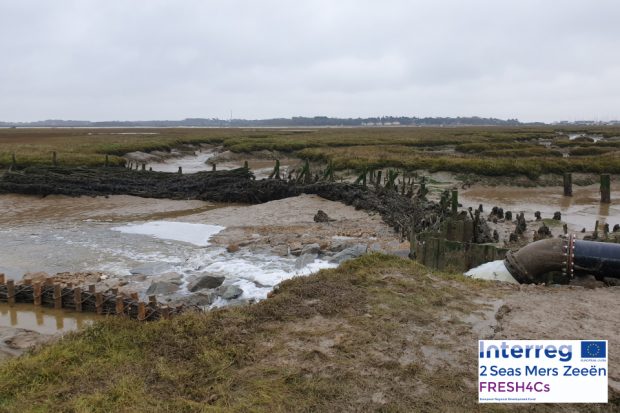
As the local project manager for the East Suffolk Priority Catchment, I have seen how stakeholders working together can overcome challenges unique to this area.
In East Suffolk there are many water dependent habitats – salt marsh, mudflats – which are a hugely important part of the local ecosystem and a haven for wildlife like waterfowl such as dark-bellied Brent goose and waders like the iconic Avocet.
At the same time, Suffolk has some of the most productive agricultural land in the country, with farmers relying on sustainable water resources to grow crops – feeding the nation and supporting the local economy. And there are the pressures of a growing population and the need for water companies to have a healthy public water supply.
Due to the changing climate we are all seeing increasing instances of flooding and also prolonged periods of dry weather, which adds to a very complex picture of local water management. We need to work together to develop new ways of delivering flood alleviation, provide more sustainable water resources for all users and to improve water-based ecosystems and water quality in the area.
Working together
East Suffolk has a strong history of collaboration. Stakeholders have come together to deliver flood alleviation schemes, improve the conditions of our rivers and streams, and find ways to make better use of water. In 2013 the Holistic Water Management Project was initiated and this paved the way for the Felixstowe project and other initiatives.
In 2018 East Suffolk was designated as a Priority Catchment under the Defra water abstraction plan. Since then the Environment Agency has been working with stakeholders across the catchment to trial innovative approaches to improve access to sustainable water.
Felixstowe project
Every year, up to 1 million tonnes of water (enough to fill 400 Olympic sized swimming pools) is drained from fields in the Kingsfleet catchment and pumped into the River Deben estuary by the East Suffolk Internal Drainage Board.
This protects prized agricultural land from flooding, but filling the estuary with drainage water can damage precious saltmarsh and mudflats which are important habitats for wildlife and part of the local ecosystem.
To solve this local issue, the Environment Agency has been working with Suffolk County Council, Felixstowe Hydrocycle Ltd and the University of East Anglia on an innovative new project.
The project identified that this drainage water could be reused in a new scheme near Felixstowe. By carefully pumping the water inland via a 12km pipeline, the water has become available for local farmers to irrigate food growing on their land. In the future, this “reused water” could potentially be used in the public water supply.
As well as providing a sustainable source of water for local businesses, the project is ensuring coastal ecosystems and wildlife can benefit by having the drainage water rerouted away from sensitive environments.
Looking ahead
This scheme is the first of its kind in England. By working together farmers are improving the resilience of their businesses to climate change, we are making a better use of a valuable resource and we are helping to protect the environment. In the future any surplus water will be used to trial Managed Aquifer Recharge (MAR), where water is stored underground until needed during dryer periods. MAR is rare in England and this trial will help identify the benefits of this system for abstractors and the environment alike.
The Felixstowe project and the East Suffolk priority catchment have highlighted what can be achieved by working together with a catchment focus. Together we are finding new ways to abstract water sustainably, protecting the environment and building the resilience to future climate change. This contributes to achieving the ambition to provide clean and plentiful water set out in the 25 year environment plan.
The recently published consultation to determine areas of water stress in England highlights how more innovative planning for water resources is going to be required across many areas of the country, each with their own environmental challenges to tackle. The lessons from our part of the world in Suffolk show how collaborating with partners and considering all the needs of both the people and wildlife in the area can lead to truly transformative results.
By Harri Condie, Local Project Manager for the East Suffolk Priority Catchment
Notes to editor
The Felixstowe project forms part of the FRESH4Cs initiative. FRESH4Cs is funded through the Interreg 2 Seas programme 2014-2020, co-funded by the European Regional Development Fund under subsidy contract No 2S06-028.

1 comment
Comment by Julian Jones posted on
How much better would it have been if DEFRA policies over past 70 + years had not squandered publicly funded subsidies to enable the agrochemical farming that has clearly eroded & compacted the soil (and presumably contaminated the run-off you are trying to protect estuary from) to vastly enable the accelerated flood run-off and subsequent droughts ?
This is 'the economics of the mad house' - small scale horticulture, fertilised with composts and manure from free range livestock requires no other off-farm inputs ! (or toxic agrochemicals) And at smallest scale much more productive than the type of farming practices you are trying to prop up. Not good at all ...